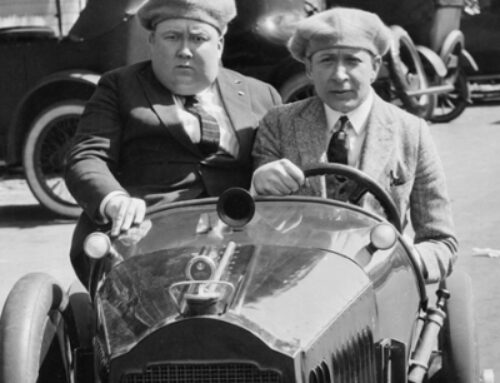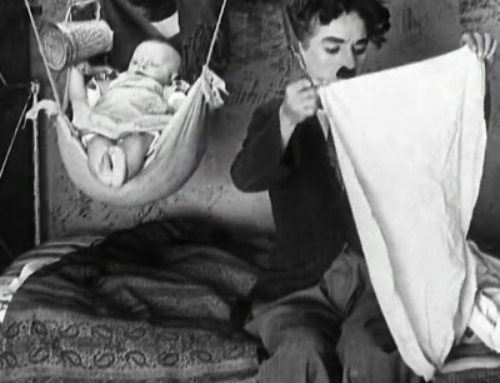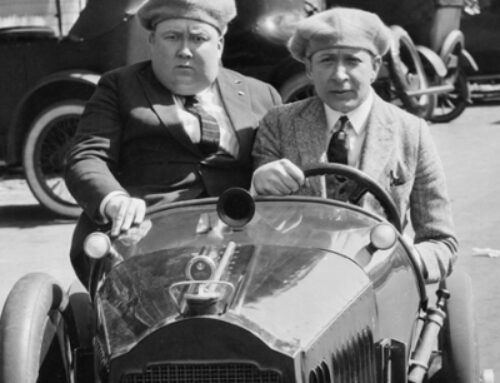The emergence of innovative initiatives based on the relationship between mountain residents and visitors is also interesting for the cultural aspects involved. It is a non-rural way of producing and trading rural products: it is the beginning of a revision of cultural communication between town and country.
Ugo Bacchella, founder and president for over 20 years of the Fondazione Fitzcarraldo in Turin, active in research, consultancy, training, advocacy for the management, policies and economy of culture.
Paolo Castelnovi, landscape architect and urban planner, is President of the Landscapefor Foundation, with offices in Turin and Genoa.
(Clicking here you can watch and listen to a video interview with Ugo Bacchella on the occasion of the presentation of the activities on ‘Places of Memory in Apulia’, 2023)
—
Paolo Castelnovi
We would like to explore the hypothesis that tourism, in an experimental key, could become a factor of interest for the younger generations in terms of cultural experience, more than the connection with a history and geography now unstructured and without appeal, it seems to count on direct contact, the emotion in the face of heritage, landscapes and people encountered, which becomes a new experiential heritage, requiring new codifications, not mediated by the cultures of others, which are now distrusted, and which are felt to be necessary for all the fundamental choices of one’s life, social and political relations, etc.
It is a hypothesis that seems to be borne out by a series of choices that young people are making more and more, but which still has no language or structures for sharing, is reduced to the personal and therefore remains naïve and we need to understand how we can interact with this for now weak but significantly innovative dynamic.
One can start from the Fitzcarraldo Foundation’s decades-long experience of interpreting and interacting with the ‘new publics’ of the cultural system and see if there are significant deviations from it, if new questions, new languages, new skills, new points of attention are emerging.
Coming from territorialist debates, in which culture is a complementary component, it seems logical to me to see the issue also from the point of view of those who have been focusing on culture for years and have considered the territory a complementary component.
—
Ugo Bacchella
Let me preface this by saying that my interest in these innovative aspects of tourism and ‘anti-urban’ living is due to my personal curiosity and is not the focus of FF’s activities or reflections.
It is my lifelong frequentation of the mountains (Valli di Lanzo) that leads me to share your reflection. In the Usseglio valley, Mezzenile and Viù stand out, with different histories and vocations, which are interesting for understanding the outcomes of these years of transformation. Mezzenile has the classic local characteristics, with the cyclamen festival and the festival with polenta and stew, with trattorias trying to set the tone, (the festival with the local dance, with a related internship to teach it to outsiders.
Viù, a historic holiday resort, equipped with services (even a public library) even for tourism in Turin, which was in deep decline until a few years ago, now hosts a few initiatives by ‘young contemporary valley dwellers’: the local butcher offering semi-finished products from the town’s great gastronomy, the pasta factory, and others offering products to a tourism that is not only local (even foreign) that in fact give sustainability to the initiatives of these young people, who are also open to considerable innovation (e.g. building or energy), forming virtuous energy communities.
These young people live in an integrated way: they attend major events in the city, they form local networks that in fact constitute new communities with people who live a little uptown and a little down town, they invent a new tourist offer that is very experiential, invented on a case-by-case basis.
These are dynamics that are now widespread: in Mantua we met people from Sauris in Carnia, where local traditions are reconstructed by narrating them with the voices of students (aged between 14 and 22).
At the centre is a new enterprise in which new relationships between guests and new ways of living are at the centre.
Certainly events such as the PNRR programmes on hamlets demonstrate, there is a cultural poverty and a devastating lack of skills among those involved, which prevents these local initiatives from connecting directly and reinvigorating institutional strategies.
Interesting results seem to be achieved only where local mayors are able to put in place a framework of even modest but integrated initiatives involving all living or patrimonial resources. Good examples are Montalto delle Marche (mayor Daniel Matricardi) or Castel del Giudice, which in fact promote significant activities in line with those in your document.
They are a sparse and heterogeneous group, haphazardly distributed between north and south, united only by the statistical fact that not a single one of their mayors belongs to the progressive, left-wing area.
Many are leghists (in conflict with Salvini).
Click here to watch and listen to this part of the dialogue on video.
—
Although there are many alternative initiatives, there is a lack of support not only from institutions, but also from agencies of the third sector, banking foundations and the media. Everything runs the risk of ending with the enthusiasm of the ‘first hour’ and the loneliness of the initiators.
—
Ugo Bacchella
So in summary, I find your introduction very centred and an excellent basis to work from, but individual experiences are not enough, too weak on their own and entrusted to individuals and their enthusiasm, and there is a lack of culture to prepare the new support infrastructures for these new initiatives, neither in the public sector nor in the historic agencies of the third sector, starting with Fondazione Fitzcarraldo itself.
The technical and cultural frame of reference of the institutions is clearly incompatible with the sense of time of a 25/30 year old. This is said by those who have tried and denounce the fatigue of being able to do anything, the lack of recognition if not in words, the fragility, the lack of continuity of the relationship with the institutions. Above all, there is a lack of competence to move from projects and practices to policies: it is lacking at the level of the promoters of the initiatives and it is lacking in the institutions that should actually accompany them or at least not hinder them. And it is lacking in the agencies of the third sector, which are supposed to deal with precisely this part of the chain: from projects to policies, bridging local initiatives on the one hand and institutions on the other.
This is not just my impression: everywhere there is a frontal mistrust of institutions and their ability to listen to and accompany the territories, which are considered to be completely subservient to clientelistic politics when it comes to giving significant support to initiatives.
—
Paolo Castelnovi
This is a nodal point. The history of FFitz over the last 30 years is precisely that of a gradual intrusion into institutions to bring certain aspects of modernisation into institutional cultural policies and to enable the involvement of new generation operators and audiences.
Fondazione Fitzcarraldo has also suffered from the same institutional trap: soft and willing to make way for projects and experiments, opaque and rigid in strategic decisions concerning investments to give body and continuity to approved proposals.
In the framework we have sketched out, we would like to abandon that way of acting on institutional cultural policies and instead give awareness and strength of relationship and network to local initiatives, which, as you point out, always end up being entrusted to the fortitude of enthusiastic initiators, who in time become disillusioned and let the whole initiative fall, in fact relying only on their own strength.
The state is missing, it is all essential and nothing is consolidated in even psychological and operational sustainability. I believe that it is not only the operational culture to connect these parts that is lacking, but certain fundamentals of politics, which demand that innovations be systematically given space. It is no coincidence that the innovative mayors are not from the left, after two generations of progressives mobilised only to occupy dignified positions in the public machine to make it work at its best. For them, innovation does not exist, or is even an annoying deterrent: after 40 years I finally managed to save up money for electroshock and now you tell me that it is outdated and that everything is done by talking and at most using a few pills? No way, now the machine is there and it has to be used! It is a paradox, but it is shamefully close to many of the events in the operational sectors of the state.
Click here to watch and listen to this part of the dialogue on video.
—
Mistrust in institutions becomes mistrust in the general cultural system and this, in the 40/50 generation that had believed in a role for culture, becomes epidemic and devastates an entire generation.
—
Paolo Castelnovi
Distrust in institutions is breaking through into distrust in the cultural apparatus as a whole. By now, it is no longer just the administrative machine in the dock, with its delays, opacities and unquestionable clientelism, but the cultural offerings themselves, from schools and universities (where the third mission is only a shadow of the role it should play) to the media and, very soon, even social media, which are increasingly accused of falsifying reality.
In this sense, I believe we must start from scratch: it is no coincidence that the cited examples of the Lanzo Valleys find success by offering citizens (those in the city) fragments of primary pleasures (food, environmental wellbeing, festivities, …), far removed from the cultural elaboration normally provided on heritage (except perhaps spectacular inventions on archaeology).
All our cultural knowledge counts for little in this perspective, perhaps our competence in communication is needed, which perhaps should be made available to technical/scientific subjects that could make contributions precisely on primary aspects (geology, forestry, archaeology, traditional crops, as is happening in Canavese).
In your opinion, is there room for this new link between those involved in the communication of traditional cultural heritage and those whose knowledge is more related to primary resources, to be presented both scientifically and through direct experience? Is it conceivable to appeal to these different skills to bring them together in a sort of alternative presentation of the territory?
—
Ugo Bacchella
The radical crisis we are talking about at the moment overlaps with the crisis of subjects such as the Fitzcarraldo Foundation, which prevent us from planning the aggregation tools such as artlab that we have been developing for years. since no one wants to work there:
On the other hand, the collapse of the generation between the ages of 40 and 50, inside and outside agencies and institutions, unavailable to this type of project with very few exceptions, is revealed.
Click here to watch and listen to this part of the dialogue on video.
—
Young people (20/30 years old) are disconnected from everything, even from the failure of the generation closest to them, and are looking for their own way, without claiming to affect collective and general issues. This overall weakness for some is also a strength, to carve out their own niche where they can more or less negotiate positions of relative ease, even with today’s so devalued dependent labour.
—
Paolo Castelnovi
The missing link of a generational kind must be attested to, which makes the impatience of the younger planners, who are in fact deprived of operational links with the administrative machinery, occupied by 30-year-olds, understandable.
We must think of talking not only to those who are integrating but also to people who are getting used to thinking with new criteria and new values (starting with giving up looking for work at all costs).
—
Ugo Bacchella
Of course, but this is the picture, and you can’t call yourself out if you don’t affect the distribution of resources and opportunities for lasting work.
—
Paolo Castelnovi
I believe that there is this awareness, but that a lockout of cultural entrepreneurship (and indeed of executive work in that field) is taking place: people are saying ‘you want to keep the resources for old things you don’t need? Keep them, and you play. Have fun.’ I am content to be on the sidelines, with little power. Of course, the search for a new model is still very small in numbers, but it is interesting that it exists, precisely from the dimension of work, where, apart from romantic neo-ruralism, it has been lacking for many decades.
—
Ugo Bacchella
Yes, but there are also different indications: of the one million who have gone abroad, many are disappointed and choose this path of non-work, but many have acclimatised themselves with satisfying jobs either in the cultural or other quaternary sector.
Mind you, there is also a considerable return from these enterprises, with a contracted return on different ways of providing work, but the work remains the same.
And in the cultural field, the allure of the professional has dropped a lot, and is becoming similar to that of a school teacher, with similar pay and satisfaction. There are areas where bargaining becomes the new test of the reserve of energy for doing something other than work.
Click here to watch and listen to this part of the dialogue on video.
—
The question remains open as to where the energies and implicit projects of the youngest are directed
—
Paolo Castelnovi
In closing, we can summarise that work (particularly cultural work) is less and less the place of interest in one’s life, that everyone is reserving their energies for doing something else and finding their quality of life there. We are left with the question of where those energies are being directed: into the affections? In physical health and body care? Into non-economic personal enterprises? Into non-entrepreneurial interests?
With respect to our projects, there are new energies to be used, and it is all to be planned. And a task for us, too, who would like to ferry the reflections of a lifetime.




